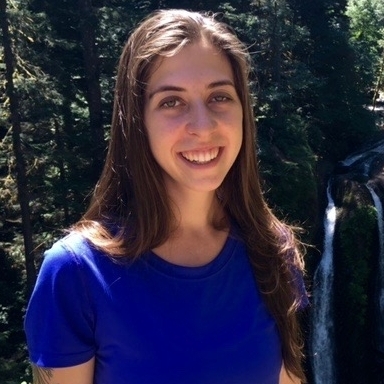Team
Emily Merfeld

How I got into science
I have always been drawn to pursuits that require curiosity and creativity, whether that be artistic or scientific. An influential high school neuroscience course piqued my interest in the deep mysteries of the brain and the elegant experiments that have interrogated these questions. Throughout college, I pursued research in neuroscience and biology labs, and found a deep satisfaction in rigorously testing hypotheses and gaining insight into the inner workings of a model system.
Non-science biography:
Growing up in and around Boston, I spent many years at Boston Ballet, then rowing with Arlington/Belmont Crew. I moved to Portland, Oregon to attend Reed College, where I was a Biology/Psychology Interdisciplinary major. My time spent outside of lab is typically spent outdoors – running, rock climbing, or biking.
Research Interests
My first exposure to research was in the laboratory of Dr. Paul Currie, studying circuitry related to metabolism, stress, and addiction in a rat model. We investigated the effects of ghrelin, an orexegenic peptide, in mediating cocaine-induced ethanol intake. As a Psychiatry Summer Training and Research intern, I worked in the laboratory of Dr. Atsushi Kamiya at Johns Hopkins studying the role of GABAA receptors in a neurodevelopmental model of schizophrenia.
For my undergraduate thesis project at Reed College, I worked under the mentorship of Dr. Derek Applewhite to examine the role of two cytoskeletal crosslinking proteins (Short Stop and Pickled Eggs) in nuclear positioning. This research was conducted in a Drosophila melanogaster model, making use of a cancer-like cell line as well as neuroblasts isolated from larval tissue.
Currently, I am interested in examining complex animal behavior including social behavior and learning. I have also become drawn to the neuroethological framework, which considers the animal in its natural and evolutionary context.
What I look for in a scientist
Honesty and the willingness to question. I believe that the more that we can let go of our egos, pursue science in a collaborative way, and enjoy as many seconds of it as possible, the better the outcome in every way.